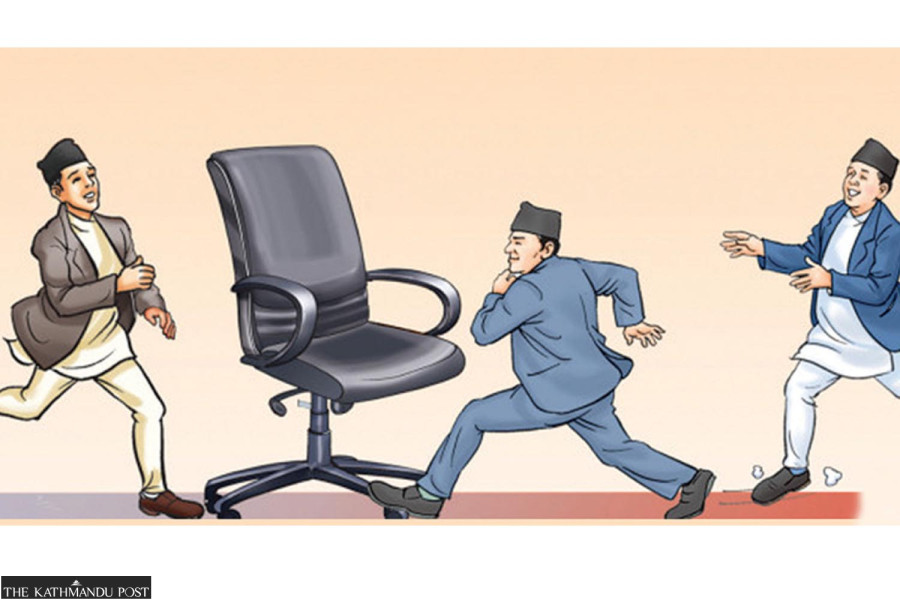Editorial
Permanent instability
There is no principled understanding and long-term thinking to underpin political alliances.
Power-centric politics continues to bedevil Nepal. A disparate group of political parties now rules the country, a group that is united only by their common pursuit of state power. The national parliament is also virtually opposition-less, thanks in no small part to the leader of the biggest party in parliament, who refuses to be confined to the opposition bench and is champing at the bit to get back his recently-lost prime minister’s seat.
Political instability has been a hallmark of Nepali politics since the restoration of democracy in 1990. When the political leaders that had earlier fought (and often been jailed) for democratic rights entered open politics, they started fighting like cats and dogs for what they believed was their hard-earned right to state power. In 1996, the Maoists started what would be a decade-long armed insurgency to overthrow this brand of self-serving parliamentary democracy. A decade and half after the former rebels joined mainstream politics and the country’s transformation from a unitary to a federal state, the steady undermining of ideology at the expense of individual ambitions continues unabated.
Almost all the electoral alliances and ruling coalitions forged in recent times have been motivated by the naked lust for power. Initially, many had welcomed the 2017 alliance between the CPN-UML and CPN (Maoist Center), a coming together of two ideological cousins. For one, the strong ruling coalition they formed promised a semblance of the long-elusive political stability. But the alliance and the later merger fell through, in under three years, over disagreements in power-sharing. The alliance between Nepali Congress and the CPN (Maoist Centre) formed two years ago was no different. It too could not last as one top leader was determined to hang on to his prime minister’s chair while the other wanted the same for himself.
Conspicuously missing was the kind of principled understanding and long-term thinking that underpin strong political alliances. The country’s mixed electoral system makes it difficult for any one party to get a majority and form a government on its own. But when two or more parties come together to give shape to a ruling coalition, they immediately start on the wrong footing as each believes the other is trying to orchestrate its downfall. Mutual trust is in short supply.
Political leaders seem ready to make and break alliances if it helps them get back to power. As unnatural as it is for the largest parliamentary party to stay out of the government, it is even more unnatural for it to give the ruling coalition its vote of confidence even when the coalition was guaranteed a comfortable victory. Again, Congress President Deuba’s desire to get back the prime minister’s seat at any cost proved instrumental in bringing about this most anti-democratic practice.
Nepali politics has become highly unpredictable. Frequent government changes have multiple ramifications. It confuses and corrupts the bureaucracy, the permanent establishment. Lack of policy continuity deters donors and investors. More than that, in the long run, the pursuit of power at all cost erodes the sanctity of the democratic process. Already, mistrust between the ruling CPN (Maoist Centre) and CPN-UML is growing following the Congress' vote of trust for Prime Minister Pushpa Kamal Dahal. National politics keeps going around in circles.




 20.9°C Kathmandu
20.9°C Kathmandu














